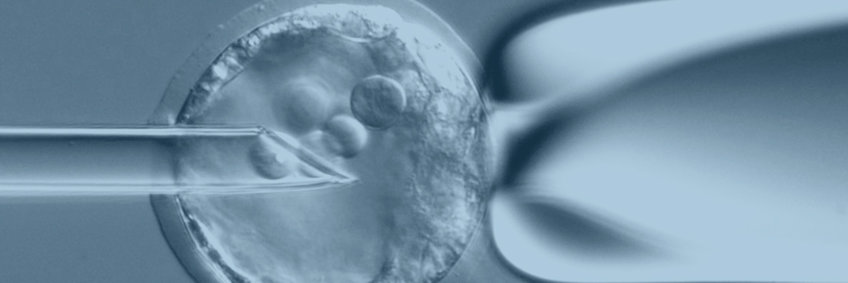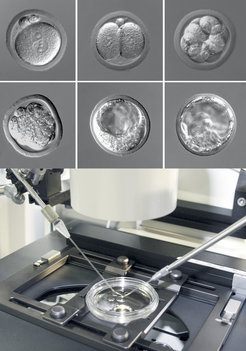
Transgenic Mouse Core Facility
The Transgenic Mouse Core Facility (TMCF) strives to provide state-of-the-art transgenic and assisted reproduction technologies in a timely and cost-effective manner. We provide researchers with novel embryonic stem cell lines or genetically modified mouse lines generated by transgenesis (by microinjection or electroporation of specific DNA constructs into fertilized oocytes), targeted mutagenesis (microinjection of embryonic stem cells into 8-cell stage embryos or blastocysts) or a range of CRISPR/Cas9 gene-editing approaches.

Assisted reproduction techniques include embryo and sperm cryopreservation, IVF and genetically manipulated embryo transfer. To advance epigenetic research by deciphering the role of specific genes during pre-implantation or later embryonic development, we support specific research projects by performing, for example, ES morula aggregations, mRNA or siRNA injections/electroporation, followed by immunofluorescence analysis.
Our barrier facility of the animal house maintains a specific pathogen-free (SPF) status by housing genetically modified mice in ventilated cage systems (IVC) that are maintained by intensively trained and competent animal care staff. Micromanipulated embryos are re-implanted under strict sterile conditions into pseudo-pregnant foster mothers within this barrier. Serological tests of selected animals are systematically performed to confirm their health status, allowing the transfer of transgenic founders or gene-positive targeted progeny to the final user areas of the animal facility. Once the germline transmitters have been identified, the researchers become responsible for breeding and analyzing their mouse lines, in strict compliance with German legislation. Researchers are responsible for keeping accurate and regularly updated records of matings, progeny and genotyping of each genetically modified mouse line in our in-house mouse colony management database, PyRAT.
We support and promote the 3R principles of human experimental techniques by striving to develop and implement new technologies, such as: establishing new methods for making precise, targeted genetic modifications using the CRISPR/Cas9 gene-editing system, increasing the efficiency of various methods of assisted reproductive technology or reducing pain by replacing injection anesthesia with inhalation anesthesia.
We welcome any opportunity to promote design, knowledge and experience to help achieve researchers’ research objectives.
